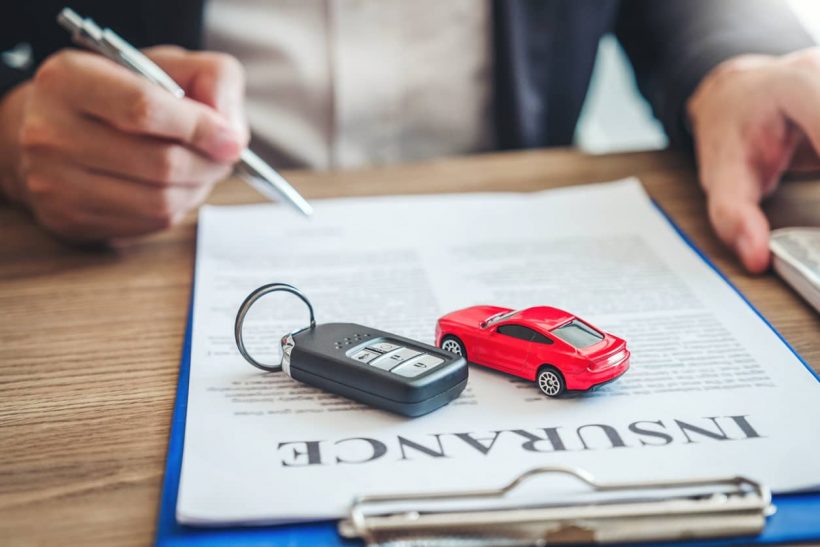Are you going to buy a car? There are a lot of things to decide like the make, the model, body colour, bumper colour, type of speakers and so on. But perhaps the most important thing you need to think about before signing on the dotted line is car insurance costs.
Car insurance companies use lots of variables to determine how much you need to pay and the car type is just one of them. Based on these parameters and the insurance company, the annual cost of car insurance may differ by a lot many pounds for the same owner.
This is why it is prudent to gather some primary car insurance quotes related to the models you have in mind. Some cars are costlier to insure because carriers use theft and crash history to determine separate rates for each model. So if your car is more prone to theft or accidents, you might end up paying more for insurance. This is the reason why sports cars, which are likely to be driven faster, cost more to insure. Below are several factors that affect policy cost.
Type of coverage

The law mandates that you have a minimum amount of car insurance, but most car owners choose to have more. Often owners go for full coverage to ensure protection from all types of accidents. It should be kept in mind that full coverage is not a policy type but a combination of mandatory and optional coverages. Still, full coverage is not all-inclusive and extra features like gap coverage and roadside assistance may be separate add-ons. Full coverage may comprise the following:
Bodily injury liability: Medical costs necessitated due to accident injuries or deaths involving your car.
Property damage liability: Property repair costs for property damaged in an accident
Bodily injury liability for uninsured motorist: Medical costs incurred when an uninsured driver is involved in an accident
Property damage coverage for uninsured motorist: Repair costs incurred when an uninsured driver is involved in an accident
Collision coverage: Repair costs due to accidents resulting from traffic conditions, irrespective of who caused the accident
Comprehensive coverage: Repair expenses necessitated by events beyond human control, like weather changes, animal hits, vandalism or theft.
Your deductible amount
The deductible on your car insurance is the amount you are required to pay out of your pocket on a claim till your insurance coverage starts working to cover the rest. A higher deductible amount implies a lower premium, and vice-versa. A person can check and compare the loan rates on carpaymentcalculator.net
Your location
If you live in a bustling urban neighbourhood, you generally need to pay higher insurance than you would need to if you live in a quaint village or sleepy suburb. This is simply because densely populated places are more prone to acts of vandalism or theft.
Your driving record

Your premium is typically lower if your driving record is clean. But if it features quite a few accidents and traffic violations, you can expect to pay higher rates. Also, the greater the number of miles you have driven, the higher will be your insurance.
Personal characteristics
Your age, gender and marital status can be factors to determine your deductible. Statistics show that single drivers below 25 years of age and males get into more accidents, and so do people over 65 years of age. Such people usually pay more.
Your credit score

Drivers who have poor credit generally pay higher car insurance rates. Insurers deploy a credit-based insurance score that differs from a regular credit score to find out the probability of your filing a claim. Such a scoring method takes into consideration factors like payment history and due debt, but cannot make use of your personal information like income or occupation.
Carrier-offered discounts
Carriers often offer discounts to people signing up for auto-pay or advance half-yearly payments in place of monthly payments. Such discounts are also offered for people who belong to a group or organization and are insured via that body. You might also get a discount if you group different insurance types, like life insurance or homeowner’s insurance, with the same carrier.
Vehicle type
The make, model, year of manufacture and type of your car can all be major determinants of your insurance amount. The insurance amount also depends on whether your car is new or used. Safety features available on your car are also a determining factor.
Claims history

No matter how perfect a driver you are, it is quite possible that you might have a car accident. And in a situation of this sort you would need to file a claim. Irrespective of the severity of the accident you had, just a scratch in the car or a terrible toiling of the vehicle- dealing with the insurance claim can be quite a daunting task. This is one of the reasons that most people try and avoid even filing for a claim.
Well as everyone knows, knowledge is power. And when you are dealing with an insurance companies, being aware of your expectations during the claiming process will guarantee that you can get treated in a fair manner. With this, your claim will also be dealt in a timely manner. Depending according to the situation, you would have to decide whether to even apply for the claim or not. In some cases paying for the damage from your pocket is the best course of action.
Your premium tends to be higher if you have filed frequent claims in the past. Also, the time you have spent with your insurer and your previous insurance company are determining factors.
The bottom line

The elegance of car insurance is that you don’t get tied up to a policy for an uncertain period. You have the freedom to choose a different insurance company when the time comes for renewal – usually six months or a year later. So it’s best to compare rates from different carriers with enough time in your hands before policy expiry. You should make yourself fully aware of the limits and restrictions applicable to each policy before making a decision.

